Treatment type: Immunotherapies
-
All in your genes: new tool investigates on and off switch for genes
Our genetic material can predispose us to a number of diseases and conditions. Technologies to edit or change our genes are still in their infancy, so scientists are instead looking for ways to use treatments to stop genes that cause health conditions from being turned on.… Read more
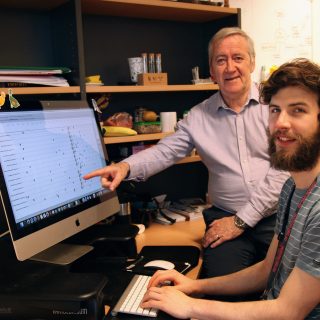
-
Could flu deaths be relegated to history?
A drug used in WW II to treat inflammation may hold the key to saving lives in the fight against flu deaths.… Read more
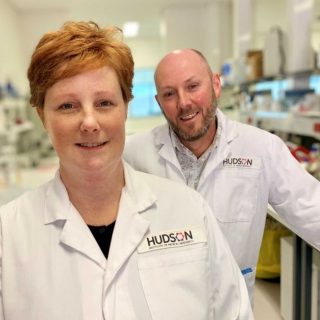
-
Mutation offers Holy Grail to combat inflammation
The discovery of a human mutation that controls inflammation could lead to improved treatments for infectious diseases. Potentially, this could improve health outcomes worldwide for diseases such as bacterial infections, septic shock, or common colds and flu.… Read more
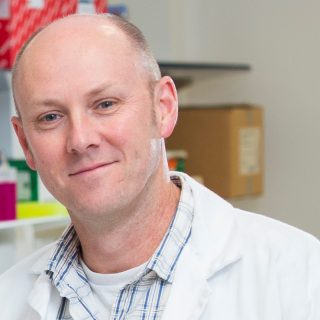
-
Fielding Foundation awards for researchers
Hudson Institute’s finest medical researchers will continue to push the boundaries in their field thanks to continued generous support from Mr Peter Fielding and the Fielding Foundation. This year, Research Group Heads, Associate Professor Claudia Nold (2019 Fielding Foundation Fellowship) and Dr Michael Gantier (2019 Fielding Innovation Award), were rewarded for their innovative scientific projects.… Read more
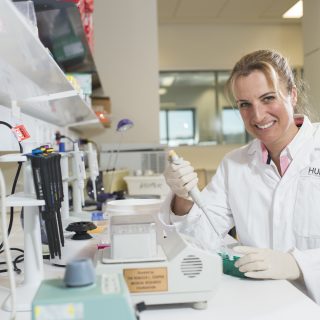
-
Lifesaving ‘off-the-shelf’ cancer tracking immunotherapies underway
‘Off-the-shelf’ immunotherapies to fight aggressive forms of cancer, including relapsed ovarian and gastric cancers, are being developed in Clayton, Melbourne, thanks to almost $3 million in Federal Government funding awarded to lead participant Cartherics Pty Ltd. Hudson Institute of Medical Research and Monash University researchers are partnering with industry leaders in cell therapies to develop… Read more

-
New role for cell death-related protein in stomach cancer
New research from Hudson Institute of Medical Research is showing how a pro-inflammatory protein could offer new hope for stomach cancer treatment. A study, led by Dr Virginie Deswaerte and Professor Brendan Jenkins, found that modifying key components of the inflammatory response in the body could help to prevent tumour growth. The findings have been… Read more
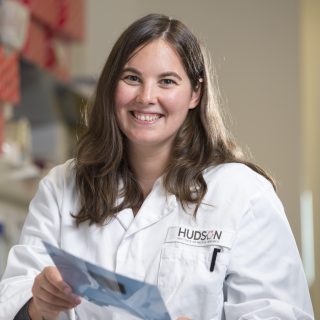
-
Fighting a deadly pandemic
Why do seasonal strains of influenza make many people sick yet cause relatively few deaths, while 40 per cent of people affected by strains of avian influenza, or ‘bird flu’, succumb to their infection? A discovery by Associate Professor Ashley Mansell could form a strategy to protect the world’s population from a potential global outbreak… Read more
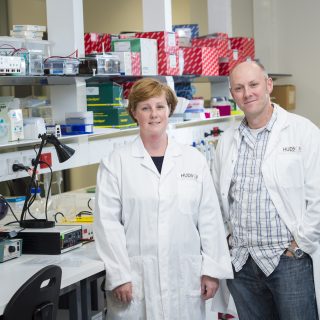
-
Could gut bacteria be harnessed to fight cancer?
The gut microbiome, the vast ecosystem of bacteria that live within our digestive system, is becoming increasingly recognised for its essential role in supporting our physical and mental health.… Read more
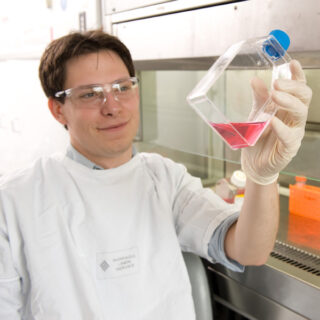
-
Harnessing immune therapies to combat pancreatic cancer
Investigating the role of the immune system in the fight against pancreatic cancer is the focus of innovative research at Hudson Institute, thanks to new funding announced on World Pancreatic Cancer Day.… Read more
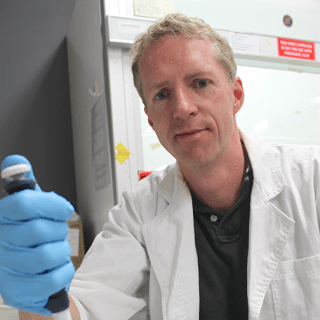
-
Emerging influenza research leader
Emerging leader in viral pathogenesis and immunology, Dr Michelle Tate has received a promotion to lead her own research group. Dr Tate’s research group, ‘Viral immunity and immunopathology’ will focus on the understanding the induction of hyperinflammation during an influenza virus infection. “My research aims to better understand the mechanisms that contribute to the induction… Read more

